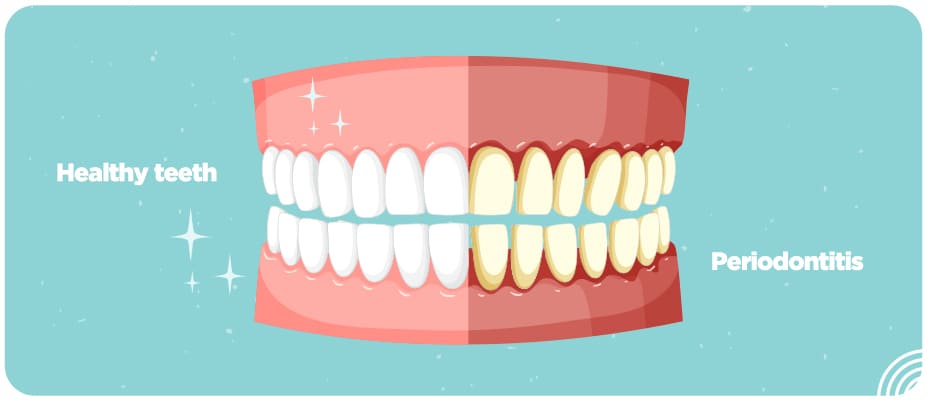When we think about maintaining a healthy heart, the last thing that might come to mind is our gums. Yet, recent research is shedding light on a significant connection between oral health and well-being of our heart, revealing that the health and condition of our gums can have a surprising impact on cardiovascular health.
Here’s how, and what you can do about it.
How Oral Health Connects to Heart Disease
Gum disease, or periodontal disease, isn’t just a problem confined to your mouth. It’s a chronic inflammatory condition that starts when bacteria in plaque accumulate on your teeth and gums. If this buildup is left untreated, this inflammation can spread beyond your gums, potentially affecting other areas of your body, including your heart.
But how? According to the Cleveland Clinic, people with gum disease are at higher risk of developing heart disease, as the bacteria responsible for gum infections can enter the bloodstream, triggering inflammation in the blood vessels and contributing to the formation of arterial plaque, leading to atherosclerosis. As the arteries harden and narrow, it becomes more difficult for blood to flow to the heart, increasing the risk of heart attacks and strokes.
The Common Link: Inflammation + Oral Bacteria
There is one word that often comes around when investigating the link between gum disease and heart disease, and that is inflammation. While inflammation is the body’s natural response to infection and a crucial part of healing, chronic inflammation can lead to a ton of health problems. When gum disease is present, the body’s inflammatory response doesn’t just stay in the mouth – it spreads throughout the body.
As explained before, this can get really serious, really fast. But, if you want to learn more about how gum disease can affect you, a study done by the British Heart Foundation explains how bacteria from the mouth can trigger this harmful inflammation, exacerbating existing heart conditions or potentially causing new ones.
However, it’s not just about getting a heart attack or stroke. The bacteria that cause gum disease, such as Porphyromonas gingivalis, can also lead to serious complications such as endocarditis, an infection of the heart’s inner lining. Porphyromonas gingivalis is a black-pigmented, Gram-negative anaerobic bacterium found in the subgingival crevice of the mouth. In healthy people it exists harmlessly, but in people with periodontal disease, it can become a highly invasive pathogen.
Protecting Your Heart by Caring for Your Gums
It may seem bleak to read about heart attacks and strokes, especially if you’ve been neglecting your dentist appointment for check-ups and cleanings. However, there is one simple solution for all of this: maintaining good oral health. Regular brushing, flossing, and dental check-ups are the go-to tools for preventing gum disease and reducing the risk of cardiovascular problems. What’s more, you’re not just improving the health of your teeth, but studies have shown that treating gum disease can improve overall cardiovascular health by reducing systemic inflammation! (Cleveland Clinic)
And for those who already have gum disease, prompt treatment is crucial. Managing gum disease can help control inflammation and may lower the risk of developing heart disease! Treatments like deep cleaning, medications, and improved oral hygiene practices can make a significant difference.
Final Thoughts
The connection between oral health and heart health is a powerful reminder of how interconnected our bodies are. Taking care of our gums isn’t just about maintaining a healthy smile – it’s also about safeguarding our overall health, including our heart.
By committing to good oral hygiene and addressing gum disease early, we can take meaningful steps toward a healthier heart and a longer, healthier life. If you want to find out more about deep cleanings and periodontal maintenance, reach out to us and schedule a consultation today, so we can create a treatment plan customized for your needs.


